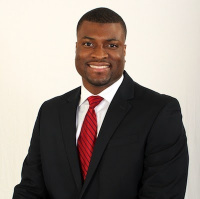 Glen Oaks Juvenile Law Lawyers, New York
Glen Oaks Juvenile Law Lawyers, New York
Sponsored Law Firm
-
 x
x

Click For More Info:
-
Henry Law
825 E Gate Blvd Suite 106 Garden City, NY 11530» view mapEmployment, Bankruptcy, Criminal, FMLA, Civil The Difference.
We practice in an array of practice areas, and employ modern technology in helping you achieve your legal objectives.
800-974-2431
Sponsored Lawyers
1-3 of 3 matches
Criminal, Immigration, Divorce & Family Law, Juvenile Law, Accident & Injury
For 25 years, Attorney Adrienne D. Edward has been offering top-notch legal representation to individuals and families throughout New York and New Jersey. Ms. Edward is an experienced Criminal Defense Attorney in New York and New Jersey. She is admitted to practice in the United States District Court of New Jersey, Southern and Eastern Districts of New York State. No matter what your specific circumstances and needs may be, Ms. Edward is committed to developing the best legal strategy to secure the best possible outcome for your case. The Law Office of Adrienne D. Edward P.C. offers comprehensive legal services in the areas of Criminal Defense (State and Federal), Family, Matrimonial, Immigration, and Personal Injury. Our firm has been recognized as one of the “Top 100 Trial Lawyers” by the National Trial Lawyers Association. For reliable and effective representation, reach out to the Law Office of Adrienne D. Edward P.C. today to make an appointment.
(more)


 Chauncey Henry Garden City, NY
Chauncey Henry Garden City, NY Practice AreasExpertise
Practice AreasExpertise

